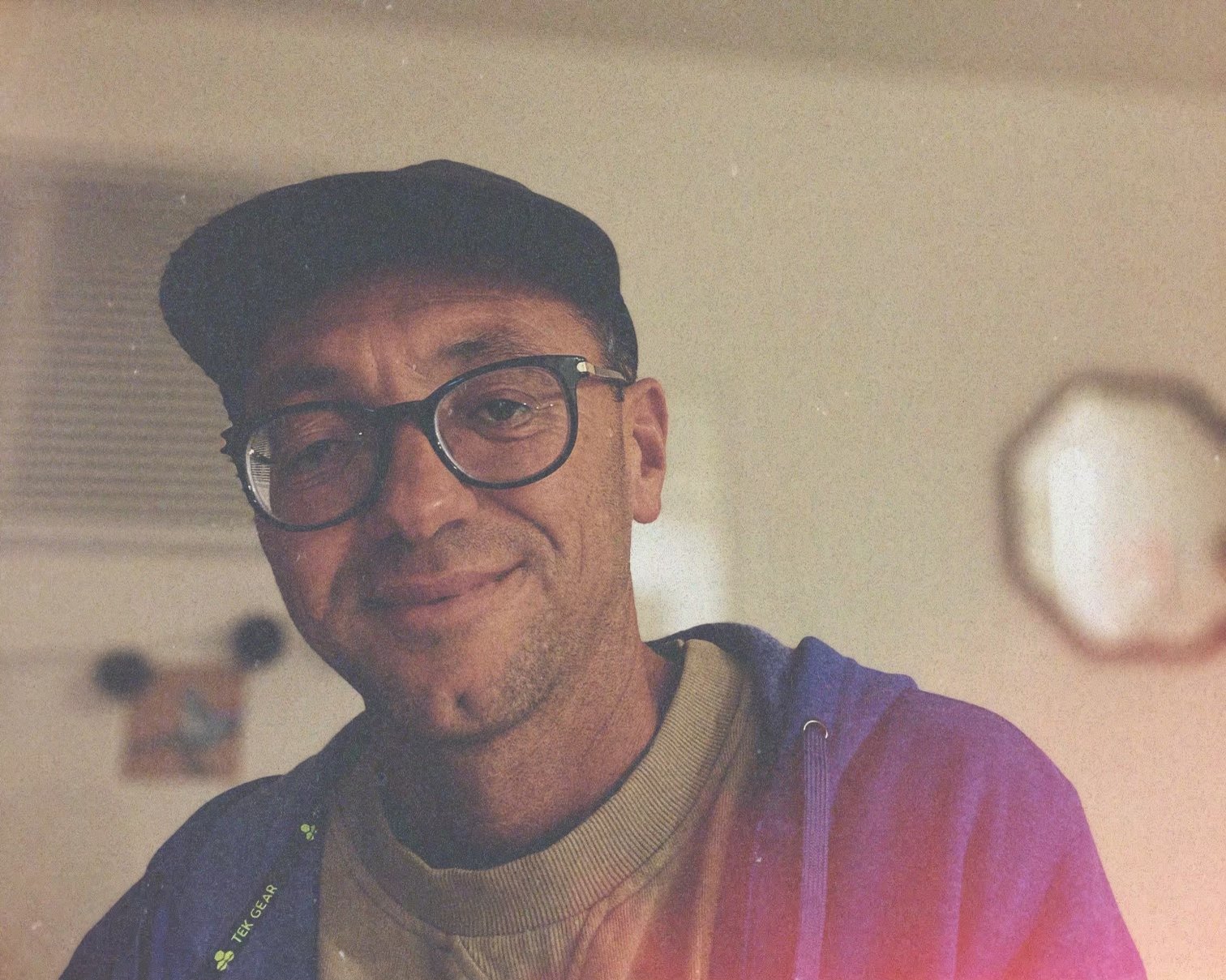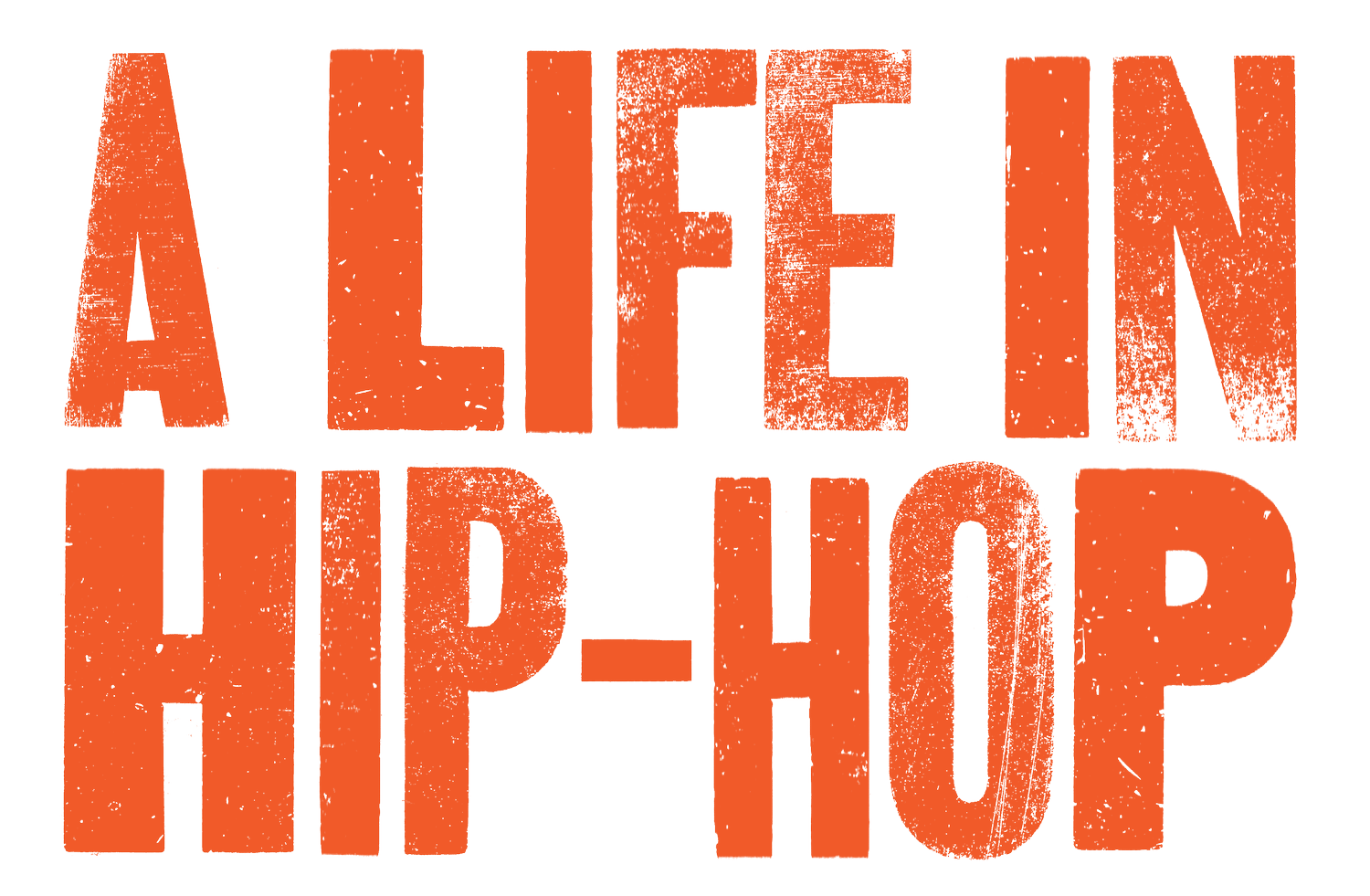
ProfileEddou xl: Beats, Rhymes and Fatherhood
By Nia Coats, Lucky Seven MagGraffiti, DJing, emceeing, breaking, and beatboxing are the five essential elements that comprise the genre we all know as hip-hop. These art forms were vital in showing the realities of what was happening around the cities that we all loved and lived in, and they put our experiences on front street. This is how Edeeq, the beat maker, and producer, also known as Eddou XL, was introduced to the culture as a teenager growing up in the Bay Area.
“I was writing graffiti in the early 90s, and then slowly that transitioned into the music side,” he said looking back on his upbringing alongside hip-hop. “And by 95 or so, I was writing raps and freestyling. At that point, I knew that I wanted to be involved in making the music.”
Being raised as an Arab-American, hip-hop was one of the first ways he saw himself in media. When he started to see hip-hop as more than music, he understood everything on a deeper level. He was listening to artists like The Wu-Tang Clan rap about the Five-Percent Nation, as well as Rakim and Big Daddy Kane, they all touched on the different life aspects that were the same things he heard in his Arabic household.
The way we saw hip-hop meld with art, he saw it merge with his life. Inside his home, the messages were the same, and outside of his home, everything reflected the genre he loved. He saw his life evolve alongside everything he was doing.
As Edeeq’s life changed, so did the genre. He went from being a teenager involved with the art of the genre to moving into the other elements. He was exposed to the different components of hip-hop through movies like Beat Street and Breakin’ as a child. As he got older, he still remains a student of the genre listening to current artists like critically acclaimed rapper Mavi and Brooklyn-based Lord Kayso but he’s still going back and revisiting the music that initially got him interested in hip-hop in the first place.
Eddou XL's daughter (circa 2012) holding a funky favorite.Edeeq finds himself listening to older and today’s music as a bridge between two eras of the beloved genre that cannot be more different. Now being a dad and family man, he finds himself in a different space. Along with his wife, raising a daughter who is now the same age as he was when he found himself venturing into the music that ended up changing his life.
Though Edeeq has such a strong relationship with hip-hop, it is not something that he pushed onto his daughter. Growing up, she saw everything her dad did around the house, but she found her way to the genre and the sounds surrounding it. Now they have a mutual relationship where they can expose each other to the music they love through their shared playlists.
“I feel like it's definitely a two-way street,” he said, pondering on the relationship he and his daughter share through music. She introduced him to artists like Kali Uchis and in return he showed her artists like Mac DeMarco. “I think it's fun. It's a really fun exchange between me and her,” Edeeq said. But at the same time of them exploring new genres together, he wishes there was more representation for his daughter to see herself in hip-hop.
Hip-hop is world culture now but it is a unique experience in every distinct place. It has changed from being the voice of the youth in various cities in the states, to now being the backing track to revolutions throughout the entire world.
“I feel like hip-hop in the has become very rap centric, and other elements are not so visible anymore,” he said. “It's really the rest of the world that has really picked up the torch and ran with it and continues to show hip-hop as a full culture. It is just so inspiring to see where it started and where it is now.”
Nia Coats is an independent journalist located in the Bay Area who covers topics on music, culture, and life. She has bylines with the Okayplayer, San Francisco Chronicle, KQED, and her own music and culture publication, Lucky 7 Magazine.

